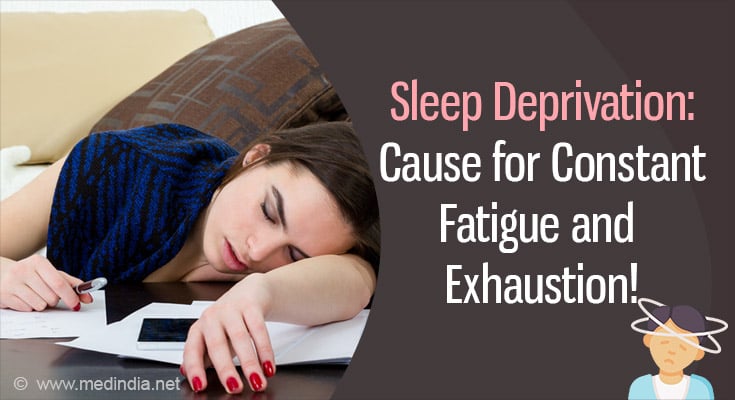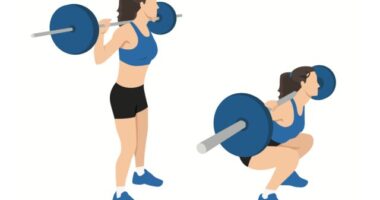-
Feeling sleepy during the day indicates an underlying health issue - Sleep deprivation, due to sleep apnea and insomnia, is the primary reason for excessive daytime sleepiness
- Medical conditions like anemia, mental health disorders, and neurodegenerative diseases can also trigger an excessive feeling of drowsiness
It is common to experience occasional mild daytime sleepiness.
However, if an individual experiences fatigue or drowsiness, along with a sensation of tired eyes that require frequent closure, it could be due to excessive daytime sleepiness (EDS). The individual may also be found napping more often and still feeling sleepy upon waking up.
If the feeling of excessive sleepiness occurs suddenly or frequently and leads to more than the recommended 7-8 hours of sleep, this may be a reason for alarm.
In addition, constant fatigue and exhaustion can significantly hinder the daily activities of the individual and pose a potential risk, especially when driving a vehicle or operating machinery (1✔ ✔Trusted Source
A Practical Approach to Excessive Daytime Sleepiness: A Focused Review
Go to source). Therefore, it is important to consult a healthcare professional to identify the cause and get treated.
Excessive Daytime Sleepiness-Causes and Remedial Measures
The six common causes of excessive daytime sleepiness and remedial approaches to regain control of life:
1. Sleep Debt:
Sleep Debt and Sleep Deficit are terms used to refer to an individual getting insufficient sleep.
Sleep debt is the difference between the amount of sleep an individual requires and the actual time he spent sleeping. The individual gets insufficient sleep consistently than the required sleep (2✔ ✔Trusted Source
Sleep Debt vs Sleep Deficit (Sleep Disorder Telehealth Tips)
Advertisement
However, if an individual is consistently been experiencing difficulty in falling or staying asleep, it is called sleep deficit.
Insufficient sleep or lack of sleep are associated with decreased immune function, disruption of metabolism leading to weight gain, and an increased likelihood of falls and accidents. Extended periods of sleep deprivation also impact memory and cognitive abilities (3✔ ✔Trusted Source
Sleep Debt: The Hidden Cost of Insufficient Rest
Advertisement
Common Causes of Sleep Debt or Sleep Deficit:
Neglecting Sleep: Failing to prioritize sleep in favor of other activities can result in feeling drowsy the following day, and this issue can gradually worsen over time.
Quality of Sleep: Inadequate sleep is not only related to the duration of sleep but also to the quality of sleep. Individuals who experience disruptions in their sleep cycles may struggle to achieve sufficient deep sleep or REM (Rapid Eye Movement) sleep. Consequently, they may not feel refreshed upon waking up, even if they have slept for the recommended hours.
Nocturia or Frequent Urination at Night: Nocturia is the condition when an individual has to wake up more than once during the night to void (4✔ ✔Trusted Source
The standardisation of terminology in nocturia: Report from the standardisation sub-committee of the International Continence Society
Go to source). Individuals suffering from nocturia may struggle to return to sleep after each disruption during the night.
In addition, some medical conditions can hinder getting a good nightâs sleep:
-
Depression - Schizophrenia
- Pregnancy
- Intellectual Disabilities
- Cancer
- Alzheimerâs Disease
- Head injuries
Remedial Approach:
To overcome the sleep debt, it is essential to get sufficient sleep. One must aim for a minimum of seven to eight hours of sleep every night and ideally maintain a consistent sleep schedule by going to bed and waking up at similar times each day.
A wearable sleep tracker can be used to observe the sleeping patterns. One commonly used tracker is the Oura Ring. It captures a wide range of data metrics to monitor the sleep and daytime activity. The parameters recorded help to evaluate the quality of sleep, rest and daily physical activity. Based on the data generated, the tracker provides suggestions for sleep habits (5✔ ✔Trusted Source
Best Sleep Trackers of 2024: Data That Matters
1. Drinking Caffeine or Alcohol:
Sleep quantity is as crucial as sleep quality; therefore, the brain must undergo appropriate sleep stages during the night. Numerous substances have the potential to disrupt this process, the two common substances are caffeine and alcohol.
Caffeine causes a delay in falling asleep, low quality of sleep, and shorter sleep time.
Alcohol leads to low-quality sleep as it reduces the extent of REM sleep and can also cause insomnia.
Remedial Approach:
Decreasing the consumption of alcohol and/or caffeine, especially in the hours leading up to bedtime, can enhance the quality of your sleep, leading to reduced daytime drowsiness.
1. Medicinal Substances:
Some drug substances can cause individuals to feel sleepy and confused throughout the day. Furthermore, withdrawal from some medications may also trigger drowsiness.
Some of the medications with drowsiness as a side effect include:
-
Antidepressants - Antipsychotics
- Anti-anxiety medications
- Antihistaminics
Remedial Approach:
Consult the healthcare provider if the medications are causing fatigue and drowsiness all day. The medication dose may need to be adjusted or be taken at a different time of the day. Any medication should not be discontinued without consulting the physician.
1. Sleep Apnea:
Sleep apnea is a widespread condition that leads to temporary pauses in breathing during sleep. It is a major cause of sleep disruptions and reduced sleep quality.
Some of the symptoms of sleep apnea include:
-
snoring loudly or gasping for air while sleeping - sore throat or feeling of dry mouth on waking
- morning headaches
- agitation or irritability
Remedial Approach:
If sleep tests confirm the presence of sleep apnea, the appropriate treatment will be determined based on the severity of the condition.
For mild cases, implementing lifestyle changes, such as weight loss for individuals who are overweight, may yield positive results. However, for cases classified as moderate or severe, the primary treatment option is the use of a continuous positive airway pressure (CPAP) machine. This device aids in maintaining open airways during sleep.
1. Narcolepsy:
Narcolepsy is a condition that affects the nervous system. Feeling sudden bouts of extreme tiredness during the day, to the extent of falling asleep unexpectedly, could indicate the presence of narcolepsy. It is a disorder characterized by the brain’s difficulty in regulating sleep-wake patterns. Individuals may also encounter the following symptoms:
-
medlink>Hallucinations, especially when falling asleep or waking up. - Cataplexy, a sudden episode of muscle weakness or collapse triggered by intense emotions like anger or excitement.
- Sleep paralysis, a temporary inability to move or speak, typically occurring during the transition into or out of sleep.
Remedial Approach:
The treatment of narcolepsy usually spans a lifetime, but there are medications available to alleviate severe symptoms and effectively handle the condition. Prescription medications, including stimulants, antidepressants, and sodium oxybate (a powerful sedative taken before bed), are among the treatment options.
1. Restless Legs Syndrome:
The primary indication of restless leg syndrome is a profound unease in the legs that triggers an uncontrollable impulse to move them. The sensation can vary from a dull ache to a crawling sensation in the skin. Giving in to the urge to move the legs can provide some relief from the discomfort. This phenomenon typically intensifies during periods of rest or at night, resulting in difficulties in falling asleep and returning to sleep after waking up in the middle of the night. As a consequence of disrupted sleep, one may experience excessive fatigue the following day.
Remedial Approach:
The actual cause of Restless Leg Syndrome (RLS) is unknown. At times, it can be attributed to an insufficient amount of iron. In such instances, the syndrome may be alleviated through iron supplementation.
Alternatively, treatment options encompass a range of medications, including anti-seizure drugs, dopamine-boosting medications like Neupro and Mirapex, as well as muscle relaxants. Regular physical exercise and relaxing for 30 minutes before going to bed helps in managing narcolepsy symptoms.
To summarize, identifying the cause of excessive daytime sleepiness is the first step in addressing it. It is important to seek an opinion from a healthcare professional. Based on the results, they can suggest remedial strategies for managing it, such as medications, dietary adjustments, increased physical activity, or counseling, among other options.
References:
- A Practical Approach to Excessive Daytime Sleepiness: A Focused Review
– (https://pubmed.ncbi.nlm.nih.gov/27445538/) - Sleep Debt vs Sleep Deficit (Sleep Disorder Telehealth Tips)
– (https://carlsonlab.org/sleep-debt-vs-sleep-deficit-sleep-disorder-telehealth-tips/) - Sleep Debt: The Hidden Cost of Insufficient Rest
– (https://www.sleepfoundation.org/how-sleep-works/sleep-debt-and-catch-up-sleep) - The standardisation of terminology in nocturia: Report from the standardisation sub-committee of the International Continence Society
– (https://onlinelibrary.wiley.com/doi/10.1002/nau.10053) - Best Sleep Trackers of 2024: Data That Matters
– (https://www.sleepfoundation.org/best-sleep-trackers)
Source-Medindia









